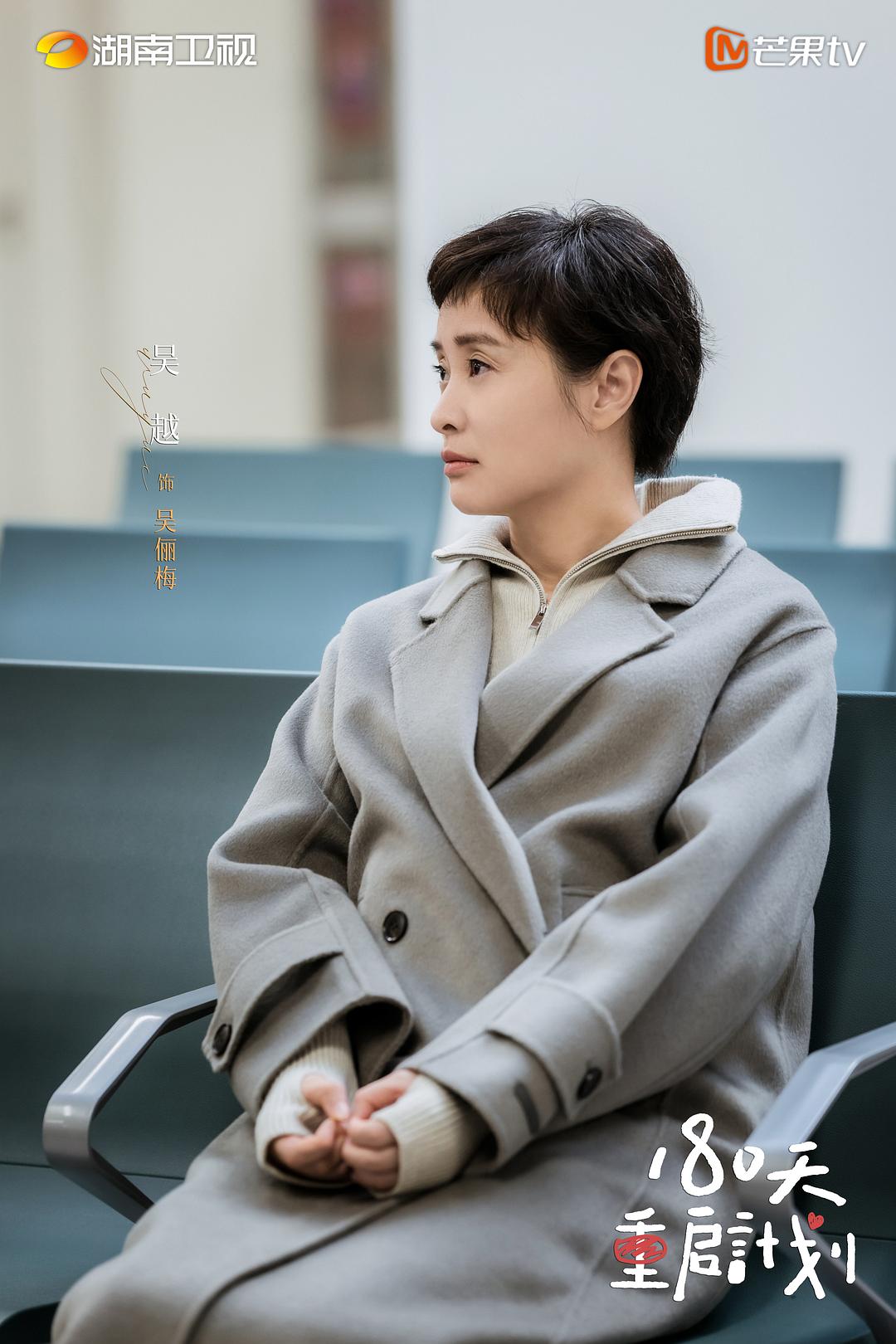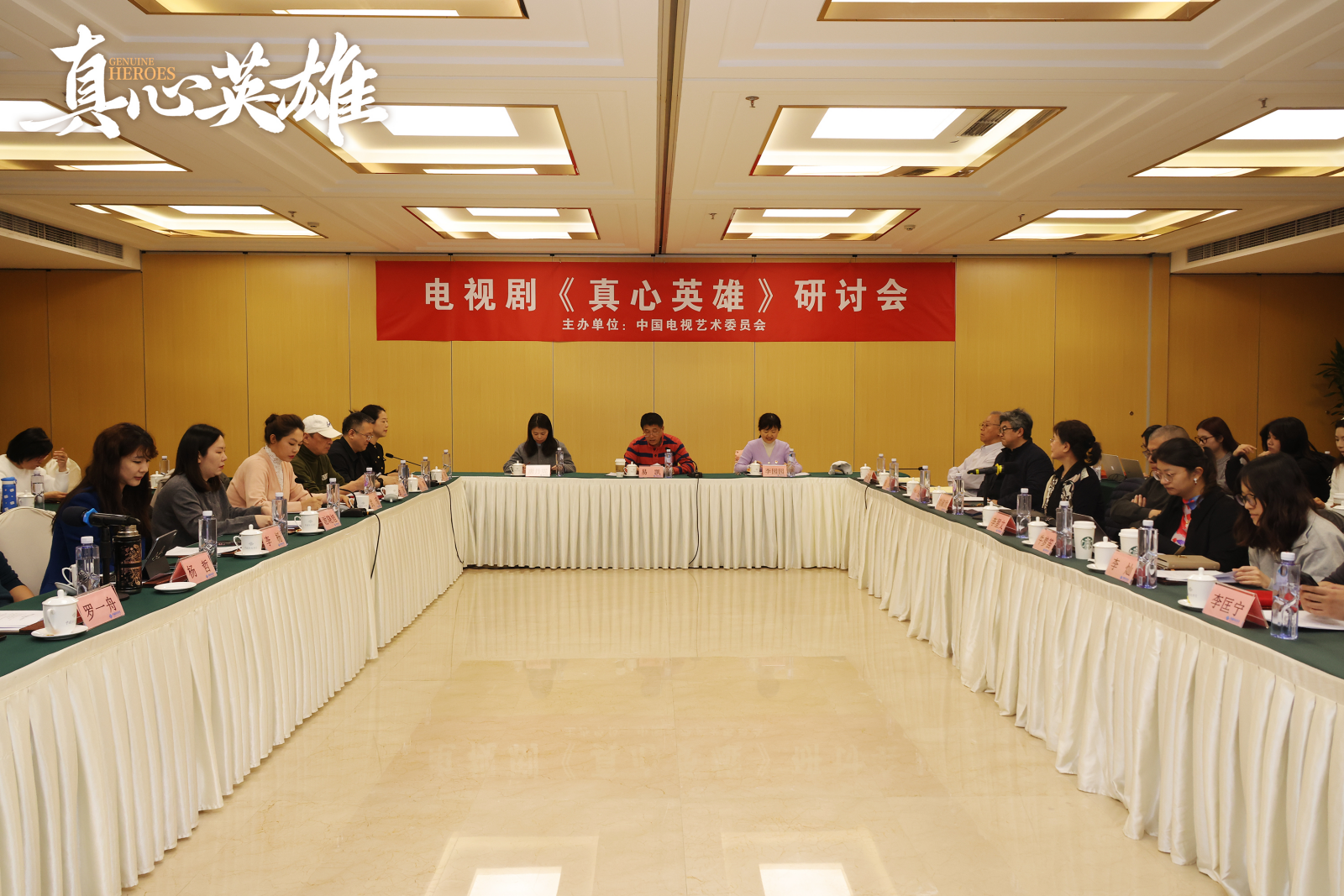
Adapted from the novel of the same name by Mo Bao Feibao, "The Way Back" written by Mo Bao Feibao himself tells a love story of "reunion after a broken mirror". "Reunion after a broken mirror" is an ancient motif in literary and artistic creation, which has been further carried forward in the field of popular culture. This type of work is launched from time to time in the drama market, and it is generally welcomed by the audience, not only because the love narrative of "reunion through a broken mirror" often comes with strong drama, but also because "reunion through a broken mirror" can somewhat arouse the audience's concern about their own unresolved problems. Sentimental memories and reveries of love. The popular song sang "What would happen if we fell in love a long time ago", perhaps many people have a person who wants to ask TA such a question in their hearts.

"The Way Back" poster
"The couple on the street are like us. There are two more people in this city who tragically ended at the beginning of the lights." In "The Way Back", the former lovers who once ended tragically, his name is Lu Yanchen (played by Jing Boran), and now he is a special police officer. Her name is Gui Xiao (played by Tan Songyun), and she is now an investor. Years ago, when they were young boys and girls on campus, they became each other's first love.
After the college entrance examination, one of them was admitted to the police academy, and the other went to the school of finance and economics. They started long-distance relationships in different cities, and they could only tell each other their hearts by phone. Because of the relationship in different places, coupled with major changes in Gui Xiao's family, Gui Xiao proposes to break up. It has been 8 years since the two officially reunited. Gui Xiao asked Lu Yanchen if he still remembered, and Lu Yanchen said, "I will remember you even when it turns into ashes", but this time they parted in a hurry.
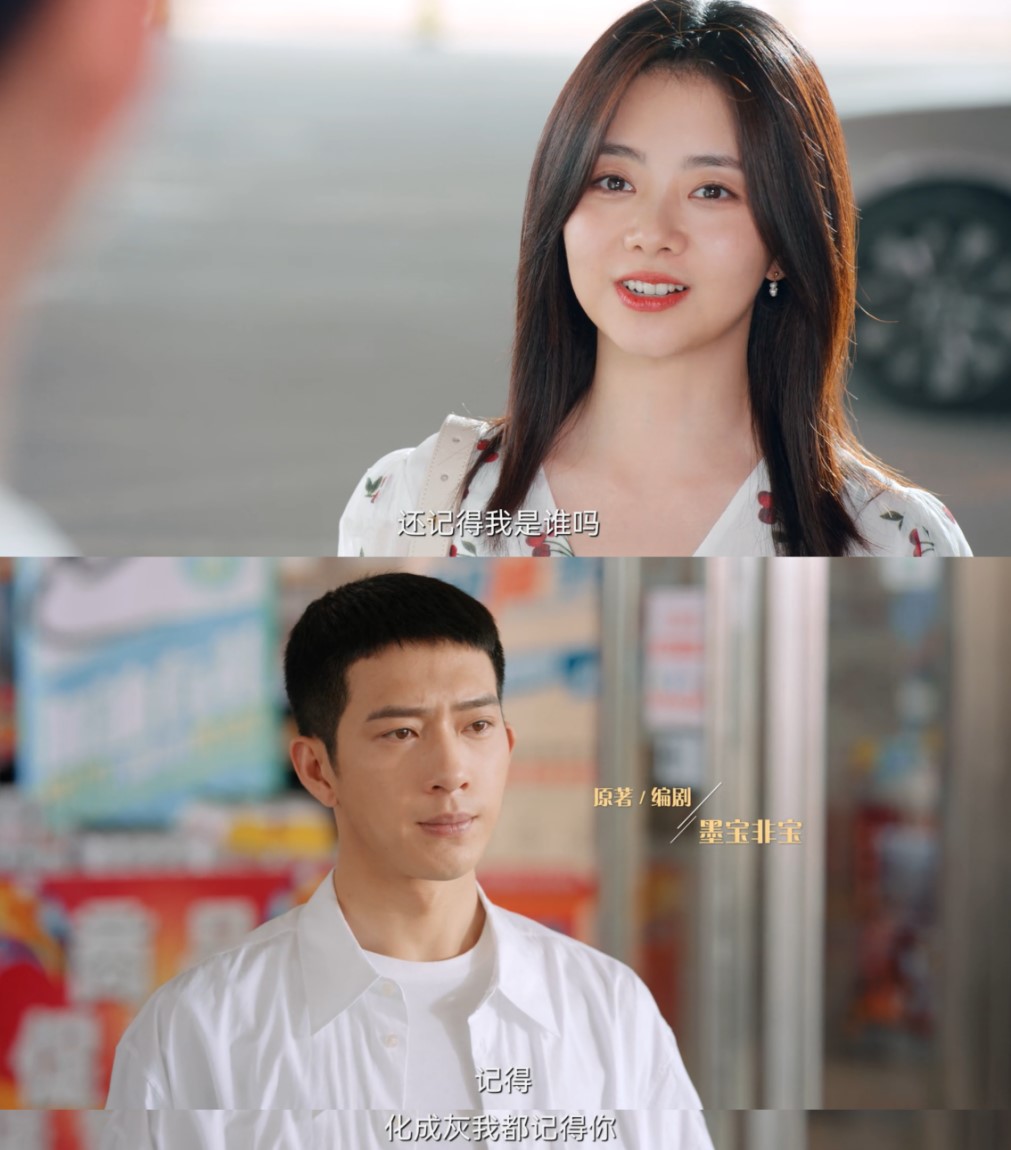
Lu Yanchen and Gui Xiao meet again
Their reunion two years later is the main plot of the opening chapter. It was in the icy and snowy city of Qining. The thick snow made this small northwest city a pure white world. The off-road vehicle was traveling on the endless road, lonely, quiet, and vast, with a refreshing beauty. This is where Lu Yanchen is on duty. Gui Xiao happened to be here on a business trip, but her car was stolen, so she had no choice but to dial the number she had already remembered by heart. The former lovers who have always loved each other reunite, there is a trace of strangeness and embarrassment flowing in the subtle atmosphere, but the heart is also trying to suppress the surging love that is pretending to be calm.

The two meet again
In short, Qining City in winter is beautiful, the director's atmosphere creation and camera scheduling are beautiful, the soundtrack is beautiful, and Gui Xiao is also beautiful... Although it is a typical love story on the market, what is certain is that "Return" "Dawn" is a drama with a good aesthetic. This seems to be the common point of Mobao Feibao's works, which pay more attention to the creation of atmosphere, and director Yu Cuihua has already restored it in place (although there are still audiences complaining about it).
It's just that, compared to the creation of the atmosphere, "The Way Back" seems a bit weak in the drama construction of "reunion after a broken mirror", which will inevitably give people the impression that the plot is not enough and the atmosphere is just enough.
It is not difficult to understand that the love story of "Broken Mirror Reunion" is mainly composed of two parts: "Broken Mirror" and "Reunion". The "broken mirror" part usually comes with a self-explanatory premise - the hero and heroine love each other deeply. Only when the male and female protagonists love each other deeply will the "broken mirror" break out a huge conflict at a moment, and the trauma and sequelae brought to the protagonist by "broken mirror" will be convincing. In other words, it is necessary for the screenwriter to lay out the process of the "deep love-breakup" of the hero and heroine in detail. The deeper the love, the more painful the hurt, the deeper the hatred, the richer the emotional level of the moment of reunion after the "broken mirror". The direction of the subsequent plot will be more touching.
"The Way Back" prefaces the reunion of Lu Yanchen and Gui Xiao. When the audience doesn't know the reason, the atmosphere is created to give the audience the kind of sadomasochistic love and the emotions of ten thousand years at a glance. It is not until the end of the third episode that there is something Belatedly cut into their school romance. And the plot of campus love is not only well-regulated, but also a little hasty. "I don't know where love starts" can be said verbally, but in visual film and television works, it is necessary for the audience to know and feel "how love starts". Only when the protagonist never forgets will it make people feel sympathetic.

campus love
At the moment of "Broken Mirror", "The Way Back" also hurriedly passed by. At least from the presentation of the plot, Gui Xiao's decision to break up was too easy, and she was too decisive in refusing to see Lu Yanchen, which made her subsequent love inevitably not self-consistent.
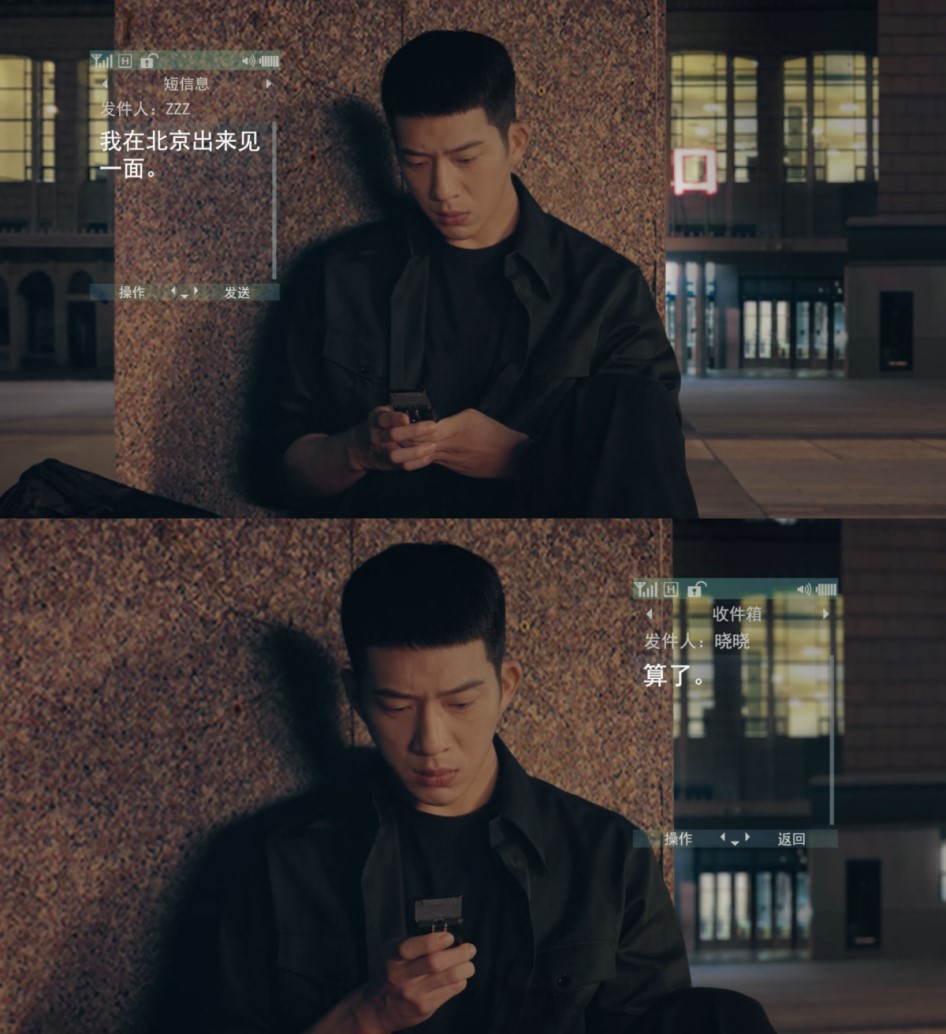
college breakup
Can't help but remind people of Mo Bao Fei Bao's other "reunion after a broken mirror" work "Why Sheng Xiao Mo" that Mo Bao Fei Bao once participated in the screenwriting. The love between He Yichen and Zhao Mersheng in their teenage years has a long history. Their "broken mirror" moment also gathers all kinds of bloody conflicts, including family accidents, family hatred, and misunderstandings. Keep reading, because these bloody conflicts really make the occurrence of "Broken Mirror" seem reasonable, and the love-hate relationship between them after their reunion seems reasonable.
Although some professional audiences will laugh at the clichés of idol drama routines, routines are essentially a collection of audiences’ aesthetic preferences, and they are effective experiences that have been tempered repeatedly by the market. When idol dramas cannot provide innovation beyond the routines, writing the routines in a proper manner can at least ensure that the series has a good story and watchability. On this point, "The Way Back" might as well be a little more routine.
The "reunion" after "Broken Mirror" is essentially a process in which the screenwriter creates resistance for the male protagonist. The more resistance, the more twists and turns the process of "reunion" will make the audience worry, and the audience will be more invested in the plot. deep. This is also the reason why ancient idol dramas like to beat mandarin ducks, "Korean drama three treasures" and other bloody conflicts so much. After all, they are the universal magic weapon that constitutes the resistance of love. As for "Why Sheng Xiao Mo", which Mo Bao Fei Bao once participated in, it took a lot of trouble on the road to "reunion", with sweet and abuse intertwined, and the lingering sound is lingering.
"The Way Back" also has resistance, but it may not be able to convince some audiences. Lu Yanchen's external resistance is mainly due to his worrying father, who owes more than one million foreign debts. The creditor's daughter happened to be Lu Yanchen's alumni. She had been interested in Lu Yanchen many years ago. The creditor proposed that as long as Lu Yanchen married the wealthy daughter, the foreign debt would be written off. Father promised Lu Yanchen a marriage contract. Although Lu Yanchen disagreed and planned to use his years of savings and borrow some money to help his father repay the debt, but when Gui Xiao asked him if he wanted to get married, he still told Gui Xiao: Yes.
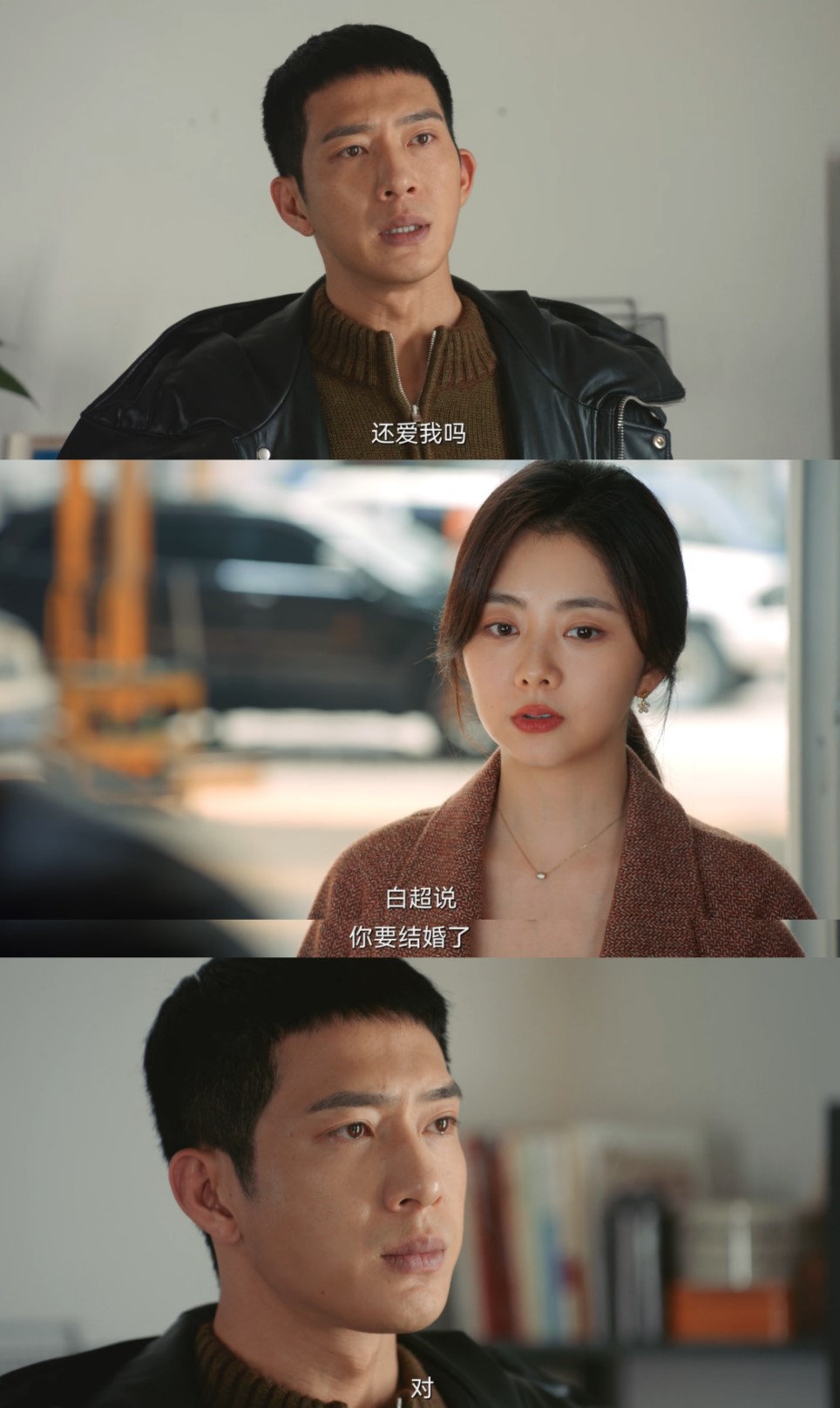
Why do you answer like this?
I would rather believe that the rich mother threw a bank card to the poor heroine to make her leave the male protagonist. I am less willing to believe that there are arranged marriages in the 21st century, especially in the male protagonist. Under the background of being a special police officer, having a dignified sense of identity, and the foreign debt is not beyond his financial ability, this arranged marriage was even pushed forward in a decent manner.
Lu Yanchen quickly settled the farce. But before the audience had time to savor the sweet abuse, Lu Yanchen and Gui Xiao had quickly "reunited". When Qi Ning reunited, his comrade-in-arms urged Lu Yanchen to quickly chase Gui Xiao back, but Lu Yanchen refused because, "I'm no longer a teenage brat, if I take it down, I'll give him something." The audience thought that the special nature of Lu Yanchen's profession would be the reason for him to reject Gui Xiao, but the screenwriter soon let the actor put this worry behind him. They have compounded.
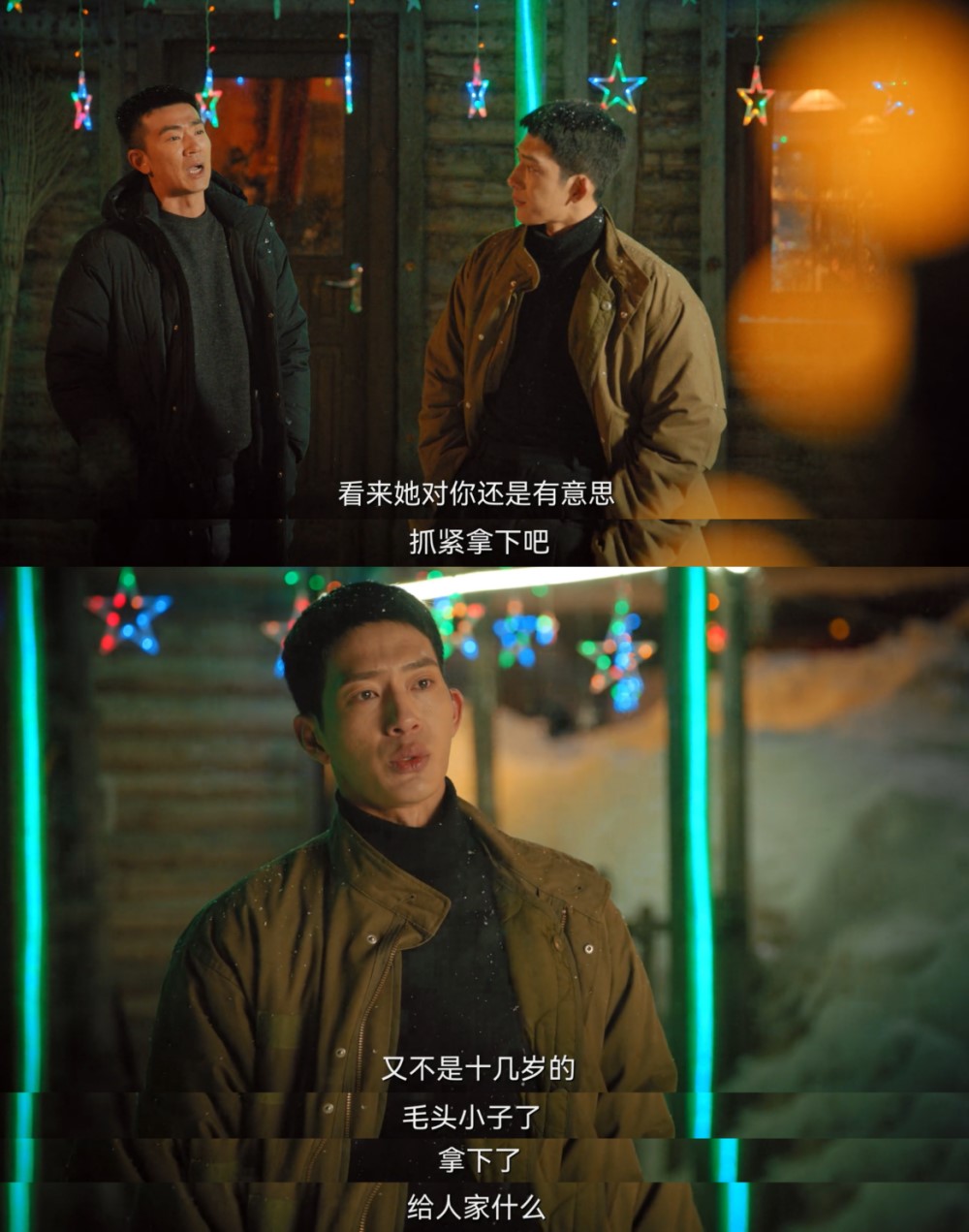
This does not constitute a "resistance" to the love between the two
Of course, it is true that the work cannot be regarded as "small". Because of the particularity of Lu Yanchen's profession, "The Way Back" is not satisfied with telling a love story of "reunion after a broken mirror". Lu Yanchen is an EOD special police officer, and any emergency mission is basically life-threatening. Half of him belongs to the country, and even the person he loves most cannot fully possess him. Gui Xiao's deep love accompanied by worry not only highlights the loyalty and enthusiasm of their love, but also highlights the nobility and greatness of Lu Yanchen's career, conveying to the audience the belief and strength of "going forward without knowing what to do in life".
If the work has such a deep meaning, of course it is very good. However, I believe that any series with special police officers as the main characters can more or less arouse the audience's reverence for them. This is due to the lofty attributes of this profession. Audiences adore the character. If the screenwriter makes way for Lu Yanchen to experience ups and downs on the road to "reunion" due to his special profession, it will not affect the creation of a noble profession and the output of positive values, and the story of "reunion after a broken mirror" itself will be more attractive. It’s okay to add value, but wouldn’t it be better to have the best of both worlds after telling a good story?
